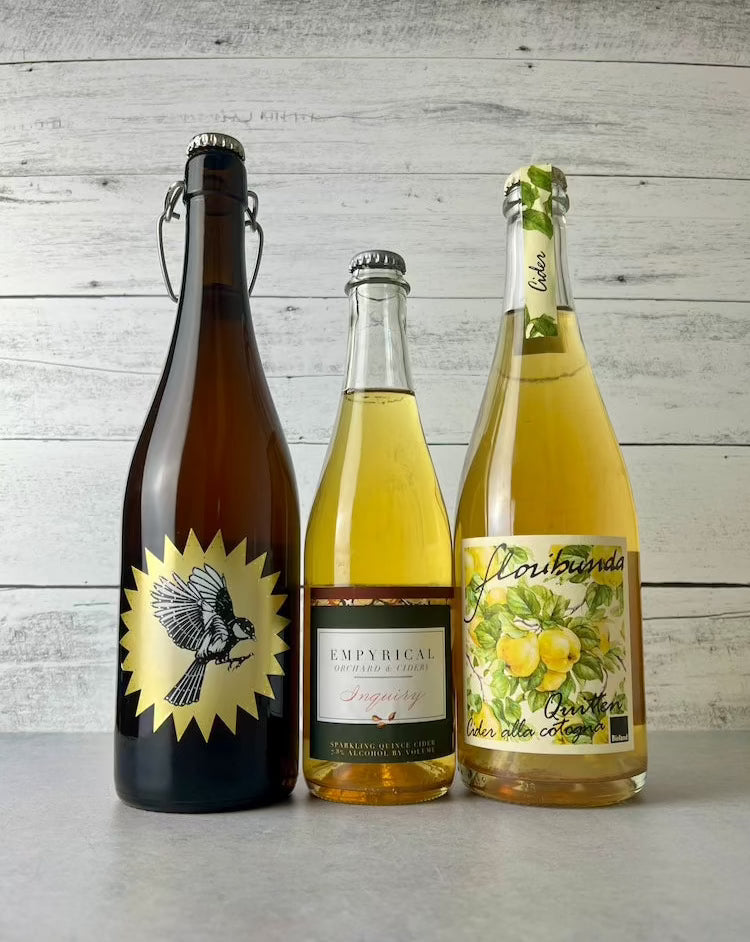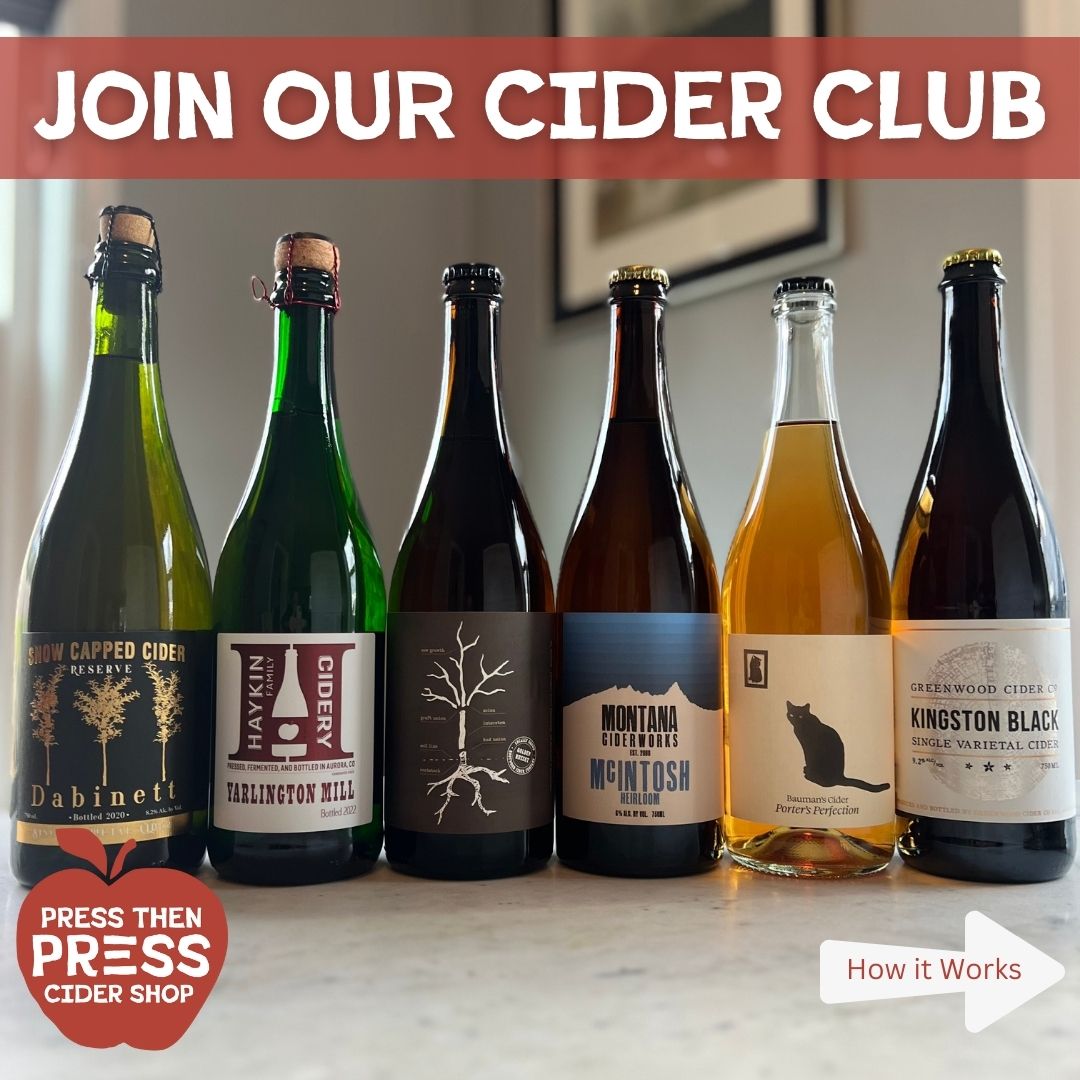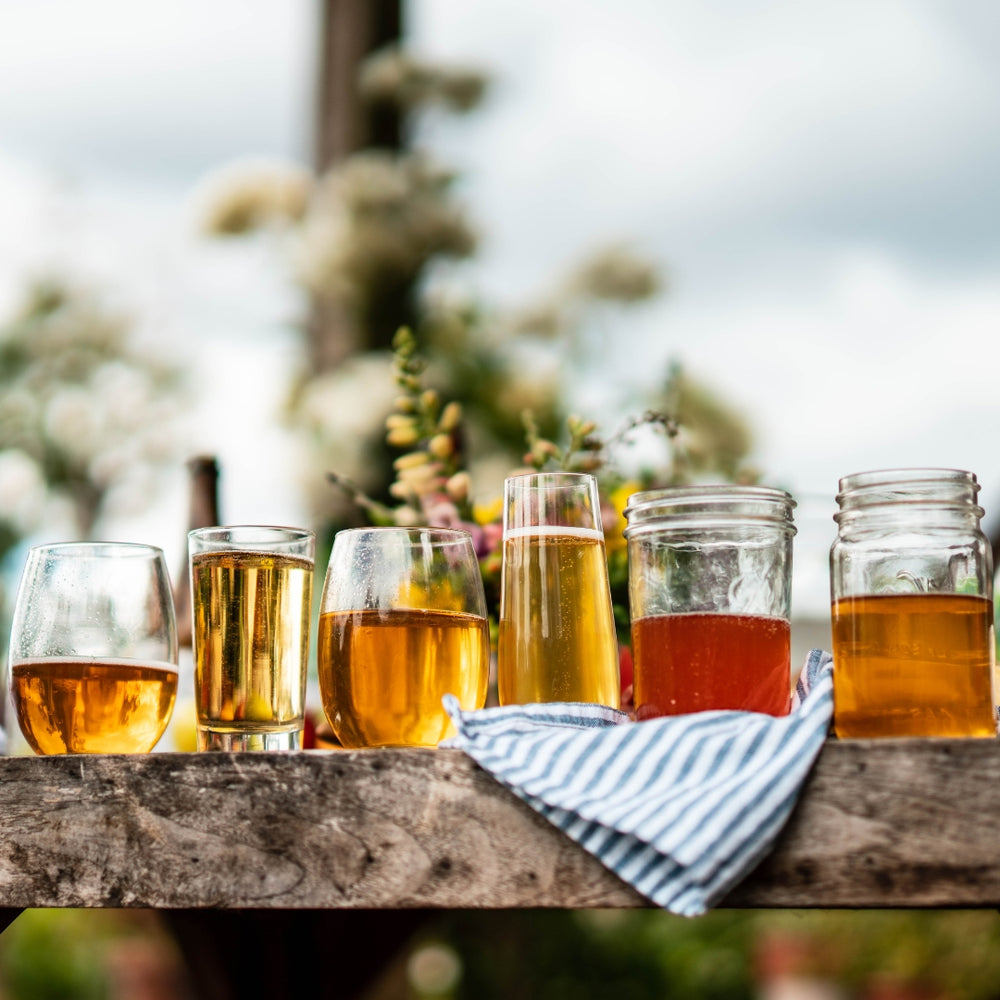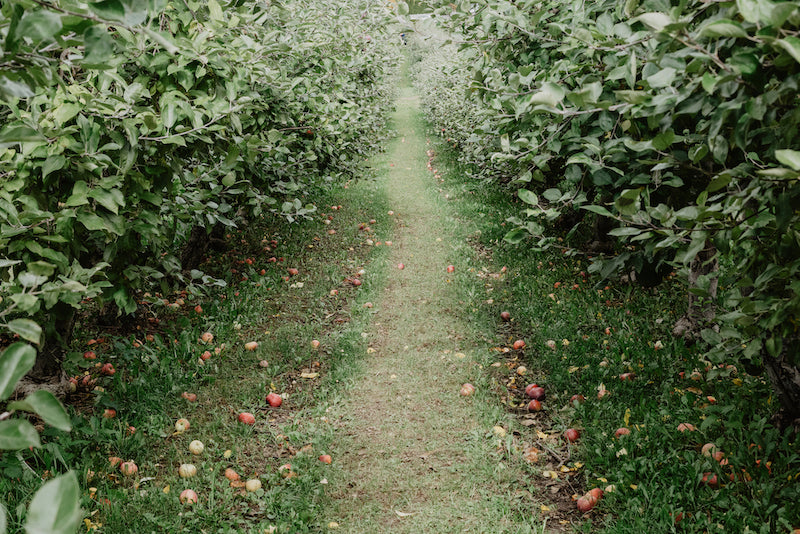Perry 101: Perry, Poire, and Pear Cider
What is a Perry?
A perry (or poiré in French) is an alcoholic beverage made from fermented pears, just as cider is made from apples. Perry differs from pear cider in that pear cider is made from both apples and pears (in the form of a coferment or a pear flavored cider - see our previous blogpost, Cider 101: The Difference Between Co-Ferments & Fruited Ciders to learn more).
Full Story:
Perry has a long history that runs parallel with cidermaking traditions in Europe, most notably in Herefordshire, United Kingdom and Normandy, France. Traditional perries are made from "perry pears" - a term covering many varieties of pears that are terrible for eating. Affectionately called "spitters", perry pears are high in astringent tannins and acidity, which provide great character in a fermented beverage, but take one bite of a raw perry pear and your face will crinkle and your lips will pucker as you feel all the moisture in your mouth disappear. Perry pears are typically small in size and come in various shapes. In the U.S., where producers aren't beholden to tradition, you'll find perry producers using perry pears, but more often you'll find perries made from culinary pear varieties and/or wild seedling pears.
Regardless of the type of pear used, making perry is notoriously difficult and not for the faint of heart. There are various reasons why this is so, which we won't get into here, but share this to say that a well-made perry is something to be highly regarded and appreciated.
Another reason to appreciate perry? The trees, of course! While we obsess over apple trees here at Press Then Press, pear trees are perhaps even more majestic. Ever heard the proverb, "Pears for your heirs"? It's a nod to just how long it takes for a pear tree to produce fruit after it's been planted. Pear trees also live a very long time, with many perry pear trees in France and the UK estimated to be over 300+ years old!
Perries can run the gambit in flavor profiles and styles. Often they have lightly floral characteristics and typically have at least a small amount of sweetness due to pears containing sorbitol, which does not ferment out. That said, there are many perries that are perceptually dry, especially those that are high in tannins.
We carry a range of perries, from more modern styles made from culinary pears, to traditional perries made in the UK and France from perry pears. Also in celebration of National Pear Month in December and World Pear Day on December 3rd, we have this limited perry bundle, which makes for a great gift for the pear fans in your life.
If you're interested in learning more or nerding out about perry, we recommend you be on the lookout for the much anticipated release of Adam Wells' book, "Perry: A Drinker's Guide" in May of 2024. In the meantime, you can read his blog, cider-review.com.






Leave a comment